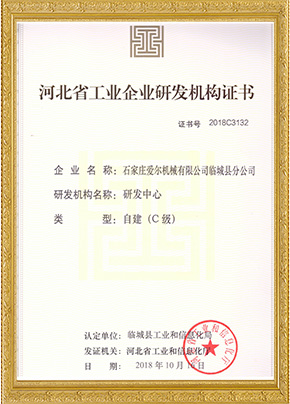Sep . 09, 2024 01:02 Back to list
slurry pump rubber
The Importance of Rubber in Slurry Pumps
Slurry pumps are essential components in various industries, particularly in mining, minerals processing, and wastewater treatment. These pumps are designed to transport slurries, which are mixtures of liquid and solid particles. The choice of materials used in constructing slurry pumps significantly affects their efficiency, durability, and overall performance. Among these materials, rubber has become increasingly popular due to its unique properties.
The Importance of Rubber in Slurry Pumps
Another significant advantage of rubber in slurry pumps is its ability to accommodate fluctuations in pressure and flow rates. The flexibility of rubber allows it to absorb shocks and vibrations, which are common in the pumping process. By reducing the impact of these forces, rubber can help maintain consistent performance and minimize the risk of pump failure. This adaptability makes rubber-lined slurry pumps ideal for operations that require reliability and resilience under varying operational conditions.
slurry pump rubber

Furthermore, rubber's chemical resistance is particularly beneficial when dealing with corrosive slurries, which may contain harsh chemicals or reactive materials. Many rubber compounds can be tailored to resist these corrosive substances, ensuring that the pump maintains its integrity over time. This characteristic not only protects the pump itself but also contributes to the safety of the entire pumping system, reducing the risk of leaks and environmental contamination.
The engineering of rubber for slurry pumps has advanced significantly over the years. Modern rubber compounds can be formulated to withstand extreme temperatures and pressures, offering even greater performance in demanding applications. Innovations in manufacturing techniques have also improved the quality and consistency of rubber components, making them a more reliable choice for various industries.
In addition to the technical advantages, using rubber in slurry pumps can have economic benefits. Although the initial investment for rubber-lined pumps may be higher than for traditional metal pumps, the increased durability and reduced maintenance costs can lead to significant savings over time. Companies can minimize downtime and maintenance expenses, ultimately enhancing productivity and profitability.
In conclusion, rubber plays a pivotal role in the functionality and longevity of slurry pumps. Its superior wear resistance, ability to withstand fluctuating conditions, and chemical properties make it a preferred choice for industries that rely on efficient slurry transport. As technology continues to evolve, the use of advanced rubber compounds will likely become even more prevalent, providing enhanced performance and reliability in slurry pumping applications. For businesses looking to optimize their operations, investing in rubber-lined slurry pumps is a prudent decision that can lead to significant long-term benefits.
-
Top Submersible Pump Companies High Quality Manufacturers & Suppliers in China
NewsJul.08,2025
-
High Quality Seal for 5 Inch Dredge Pump Reliable China Manufacturer & Supplier
NewsJul.08,2025
-
High-Efficiency Slurry Sand Pump from Leading China Manufacturer – Durable & Reliable Solutions
NewsJul.07,2025
-
High-Quality Slurry Pump Made in China Durable Steel Mill Slurry Pump & Parts
NewsJul.07,2025
-
High Quality Excavator Dredge Pump Manufacturer & Suppliers from China – Reliable, Durable, Efficient Solutions
NewsJul.07,2025
-
Wholesale Slurry Pump Closed Impeller Supplier High Efficiency China Slurry Pump Closed Impeller
NewsJul.06,2025
